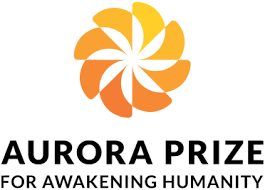by Hayk Demoyan-Director of the Museum-Institute of the Armenian Genocide
02.06.2007
When Turkish police officers posed with Ogun Salmast, the alleged assassin of Hrant Dink, a Turkish citizen and journalist of Armenian descent, their actions, documented on a video leaked to the press, made him out to be a revered hero. These shocking events revived at least two very distinct memories: first, in Turkey still there exists the grim practice of killing for the sake of the state, and the second, the morbid tradition, well-establish and documented during the Armenian genocide, of the heroic positioning of the perpetrators after their committed crimes. This hardly seems becoming a nation like Turkey who insists on becoming part of the civilized world. With the encouragement of a government who approves of jihadist actions by its police, we come to realize that many things in Turkey remain the same, under their current guise of modernization.
In an attempt to find those who made the video footage public, the official Turkish response to these shameful events turned into a fiasco. Ankara made a very instrumental offer to establish a joint commission consisting of Armenian and Turkish historians for the purpose of exploring the background of the “tragic events” of the early 20th century.
On the symbolic level, the idea of establishing a Turkish-Armenian commission to investigate why and how more than one million Armenians perished in their own homeland may seem appealing. The establishment of a commission seems to indicate Turkish historians’ openness to confronting the past and their own history by opening a dialogue with their Armenian counterparts.
However, upon further investigation we begin to question why a nation that has so adamantly been denying the occurrence of the Genocide would all of a sudden be interested in establishing a commission to investigate the case? What is the rationale for this offer?
First, the commission will allow Turkey the opportunity to debate the validity of historical facts that have long been supported by reliable, international sources.
Second, the objectivity and genuine intentions to learn the truth will be difficult to enforce since Turkey has been, for decades, viewing the recognition of the Genocide as a serious threat to its national security. Therefore, it is not likely to accept the consequences of an objective discussion. Any evidence, which does not conform to its own version of history and does not serve its political interests, will be denied.
Turkey can play out this charade by demonstrating how Turkish historians have different documents and records on the case. Indeed, Turkish archives were cleaned of “dangerous” and “alleged” materials by a special commission created by the order of the military government during 1980-1983. Once sensitive materials had been expunged from their archives, Turkish leaders suddenly appeared with magnanimous statements on free access to their State Archives. Any scholar that was given access and studied the materials available would be convinced that there is no evidence incriminating Turkey in its implication of a genocide policy against the Armenians.
The great irony is that the Turkish government, which has become very skillful in giving limited rights to its own citizens for the interpretation of the past (think Resolution 301), while appearing with the statements on establishment of Joint Commission of Turkish Armenian historians, immediately accuses the Armenian side in rejecting “very pragmatic” offer to set such a commission. In effect, Ankara accuses Armenia in politicizing Genocide issue.
Let us note that the issue of Armenian Genocide was first raised by Ankara immediately after the collapse of the Soviet Union, making it (or the disappearance thereof) as one of the main preconditions to establishing diplomatic relations with Armenia. The Turkish blockade of Armenia, since 1989 has served as a “stick” or leverage for the country to pressure Armenia to “forget” its own past.
Ankara leaves no chance for some Turkish historians to represent their vision on the problem, which is dramatically different from the official interpretations and estimations made by official Turkish government or what is called official historiography. Ankara pursues clear-cut political aims, which parallels with persecutions of Turkish intellectuals and academicians who have adopted a dissident position over the question of Armenian Genocide. Thus, the idea of discussing ‘the irrefutable Turkish past’ is nothing less than a part of the facade to actively deny the First Genocide of the 20th Century.
With its current stance of ignoring the vast amounts of international evidence of the Turkish atrocities carried out against its Armenian population in the Ottoman Empire during the First World War, which resulted in the deaths of more than 1 million people, simply humiliates the Turkish nation and image of the Turkish state in the eyes of the international community. By overlooking the numerous photos and textual documentations preserved in the global mass media and State Archives of numerous countries, and by disregarding a plethora of Foreign and local eyewitness testimonies, shame abounds for which the next generation of Turks will not easily forgive. The current iron-fisted position of Ankara leaves limited chances for winning of Turkish viewpoints on the issue.
In April 2005, Turkish Prime Minister, Erdogan, proposed to Armenian President, Kocharian the creation a commission composed of historians to study of the events of the beginning of 20th century in the Ottoman Empire. President Kocharian promptly responded to this proposal, indicating that the normalization of relations between the two countries might better be conducted via a joint, bilateral commission, further suggesting that such a complicated and important task would be a massive responsibility to lay on the shouldres of historians. Turkey still insists that Armenian side left their offer unanswered.
Sooner or later, Turkey will reconcile with its past. The protest of thousands of Turkish citizens after the murder of Hrant Dink proved there are many who are beginning to see the light.
The future of Turkey depends on them.





